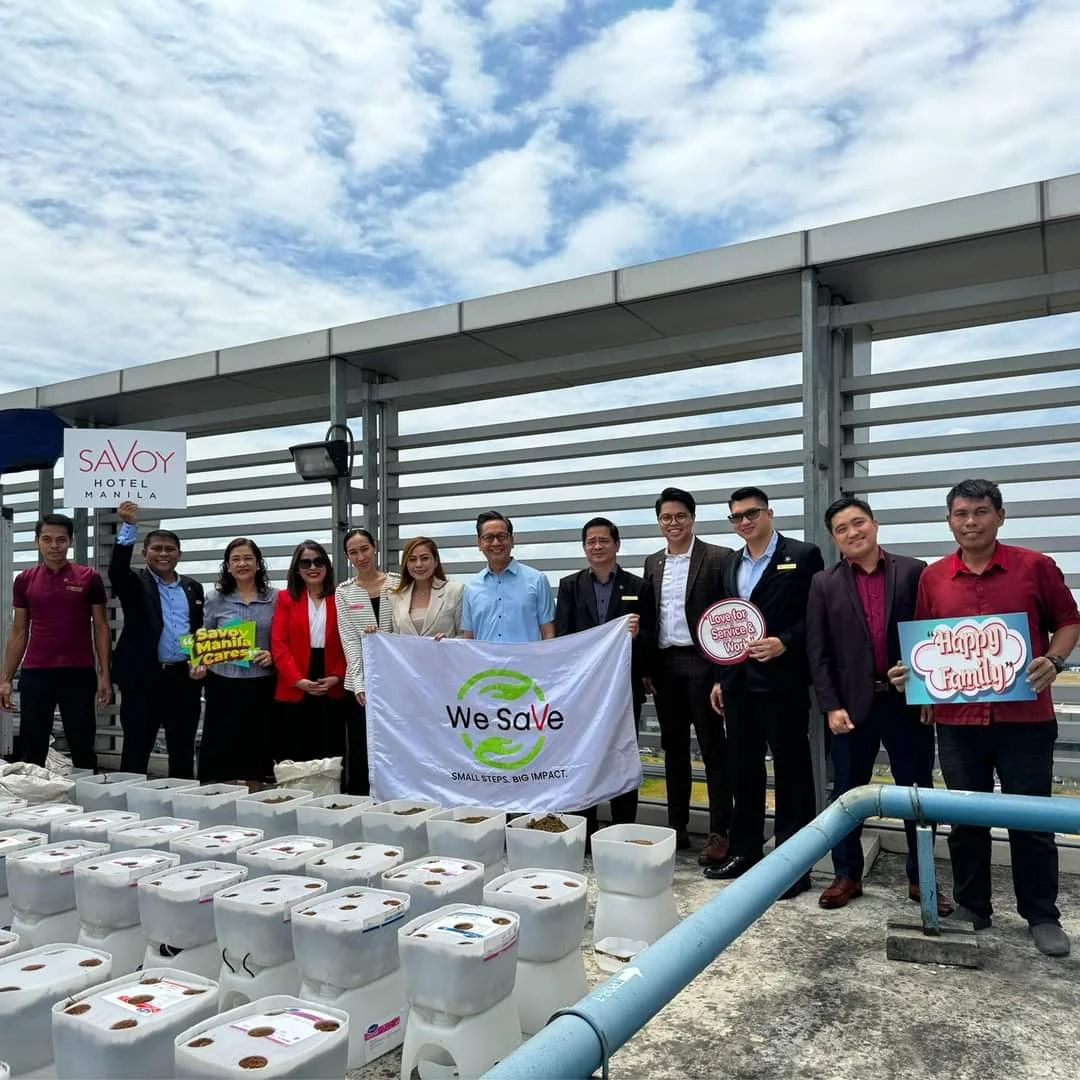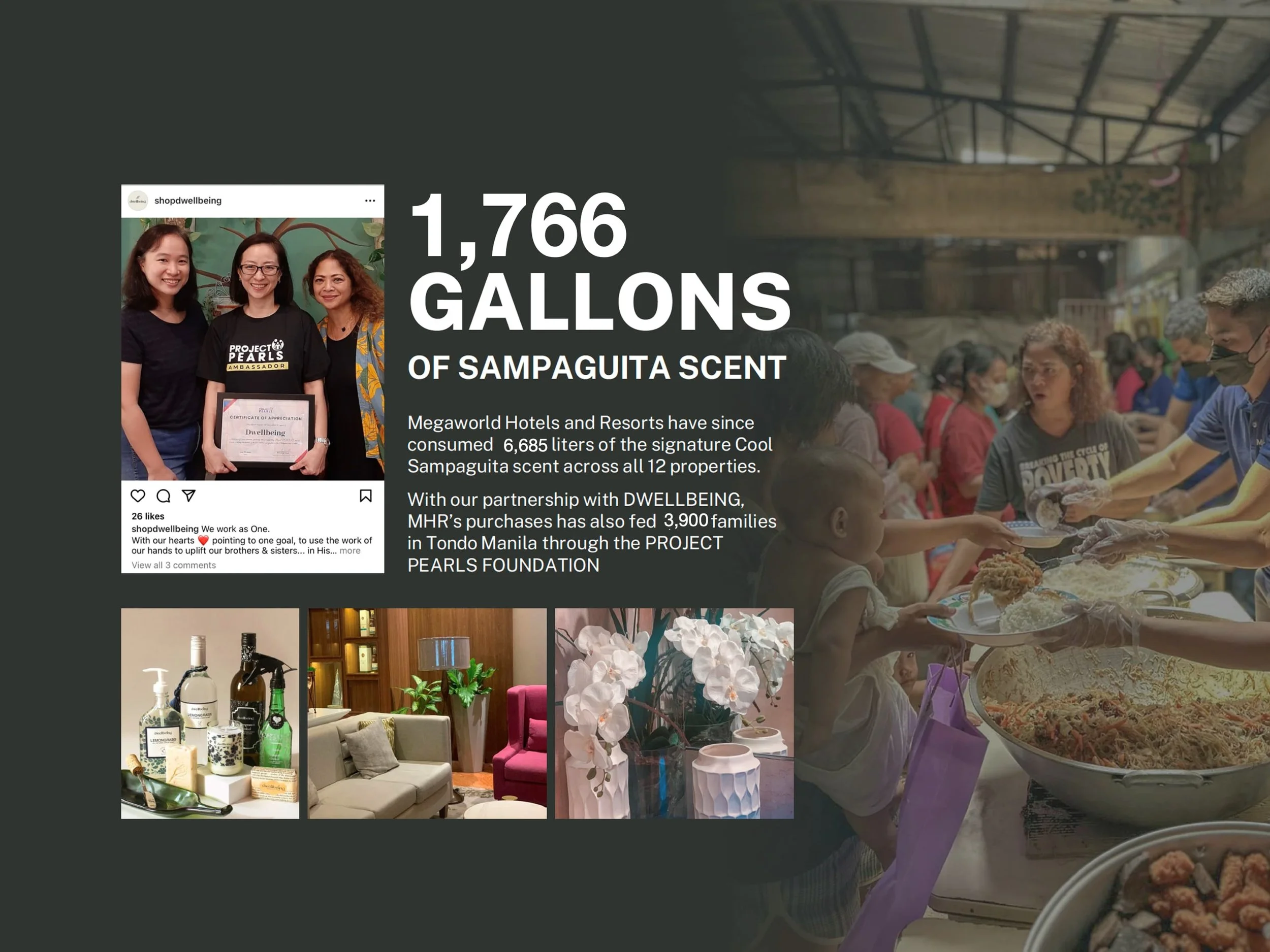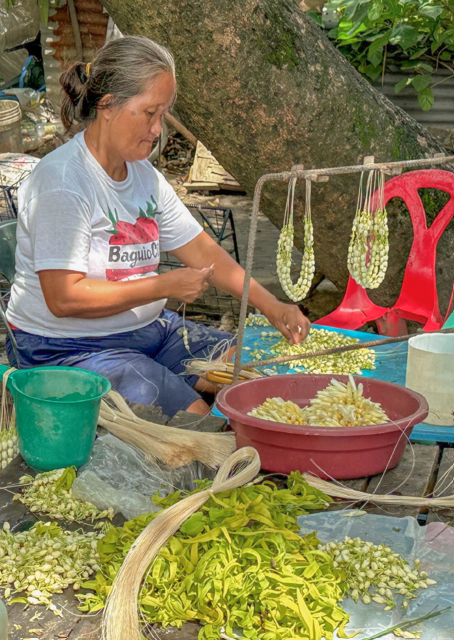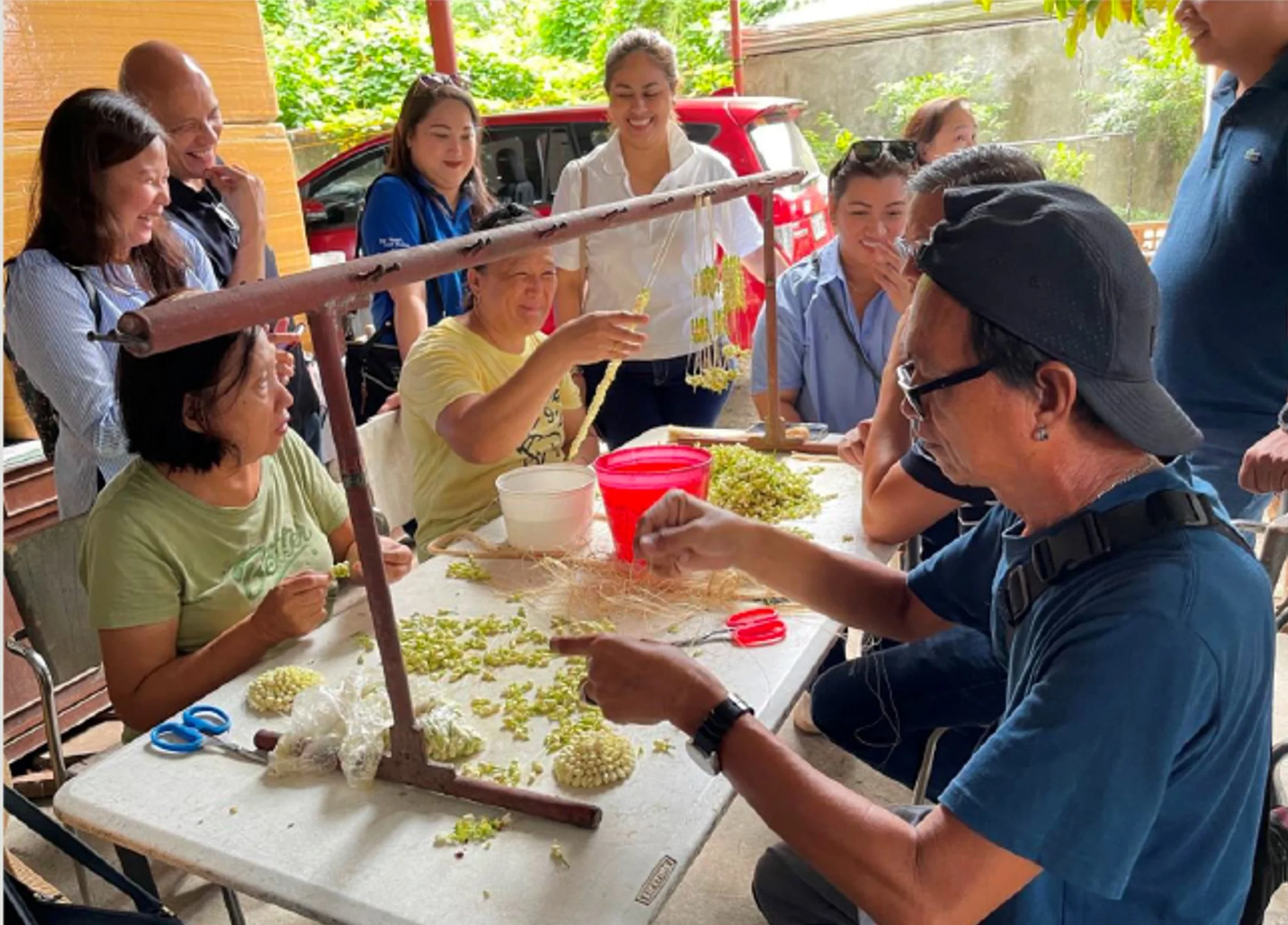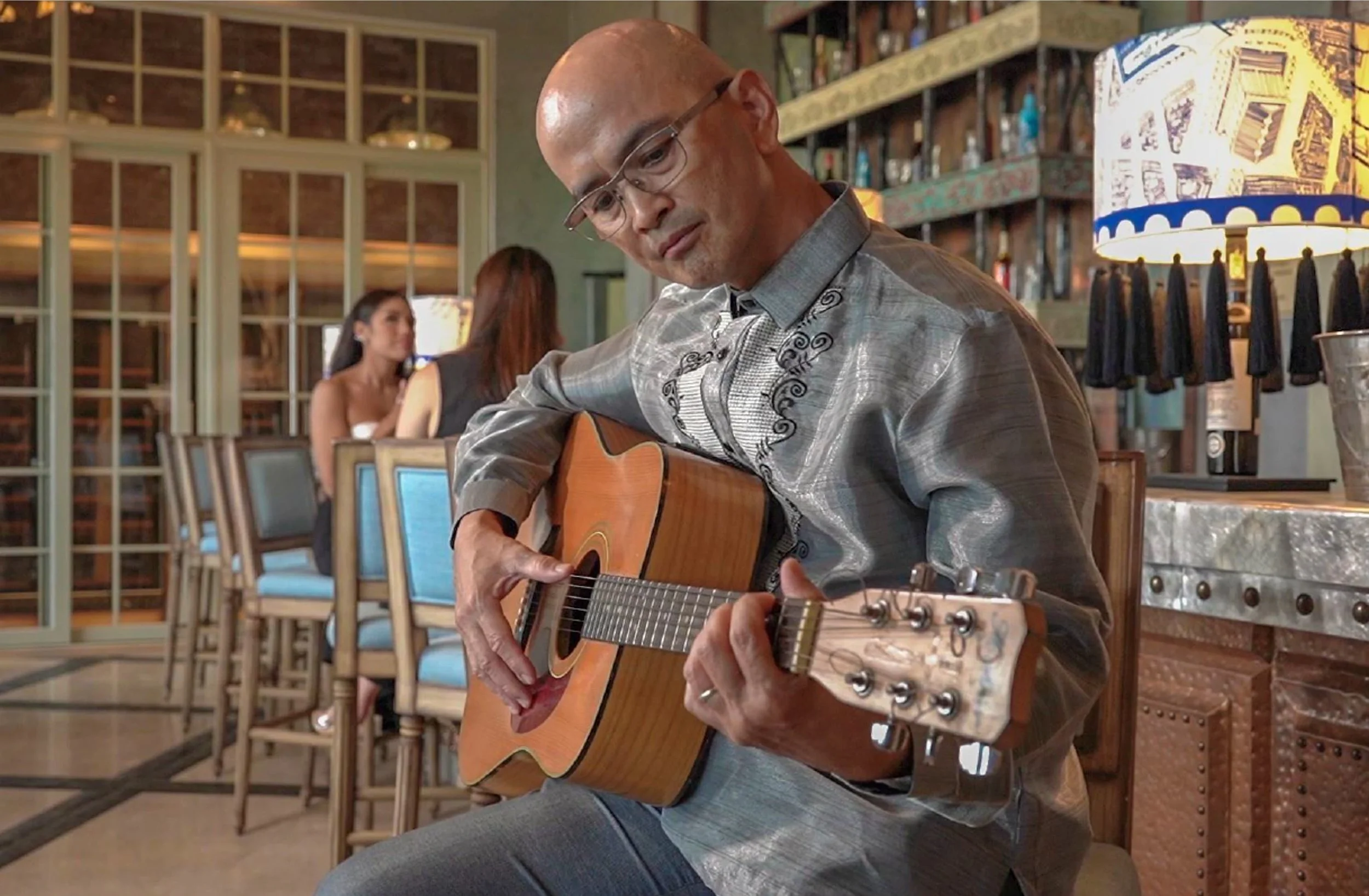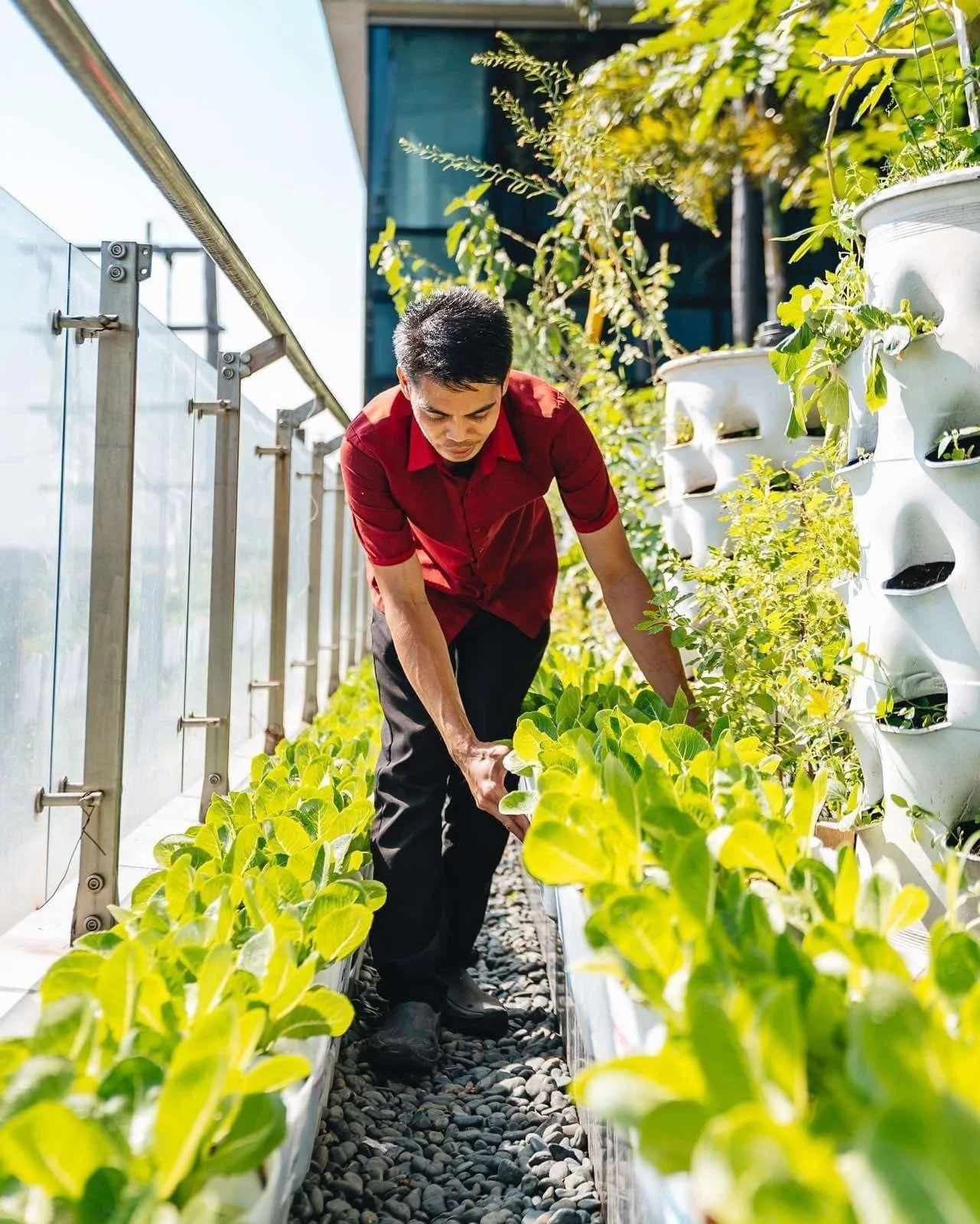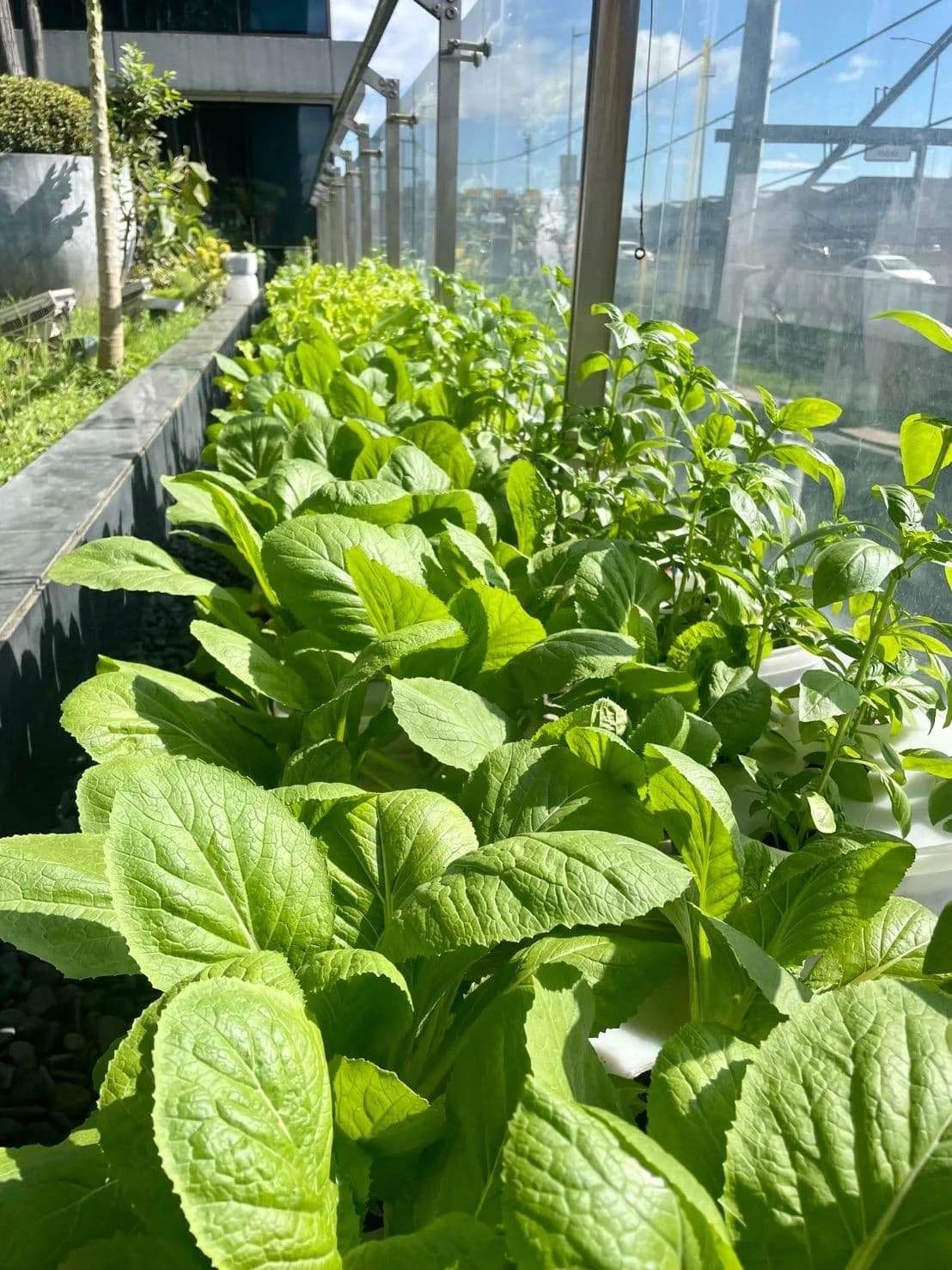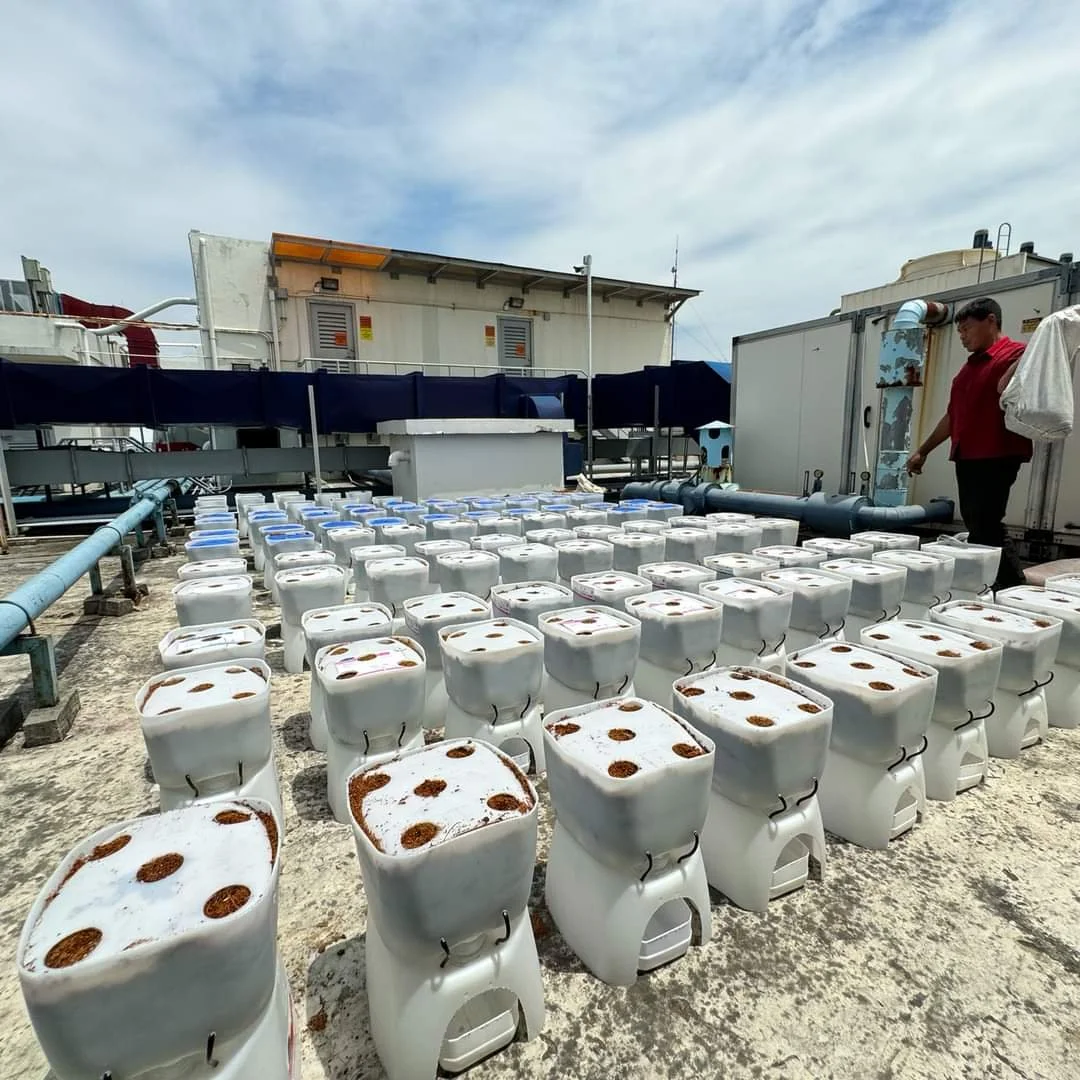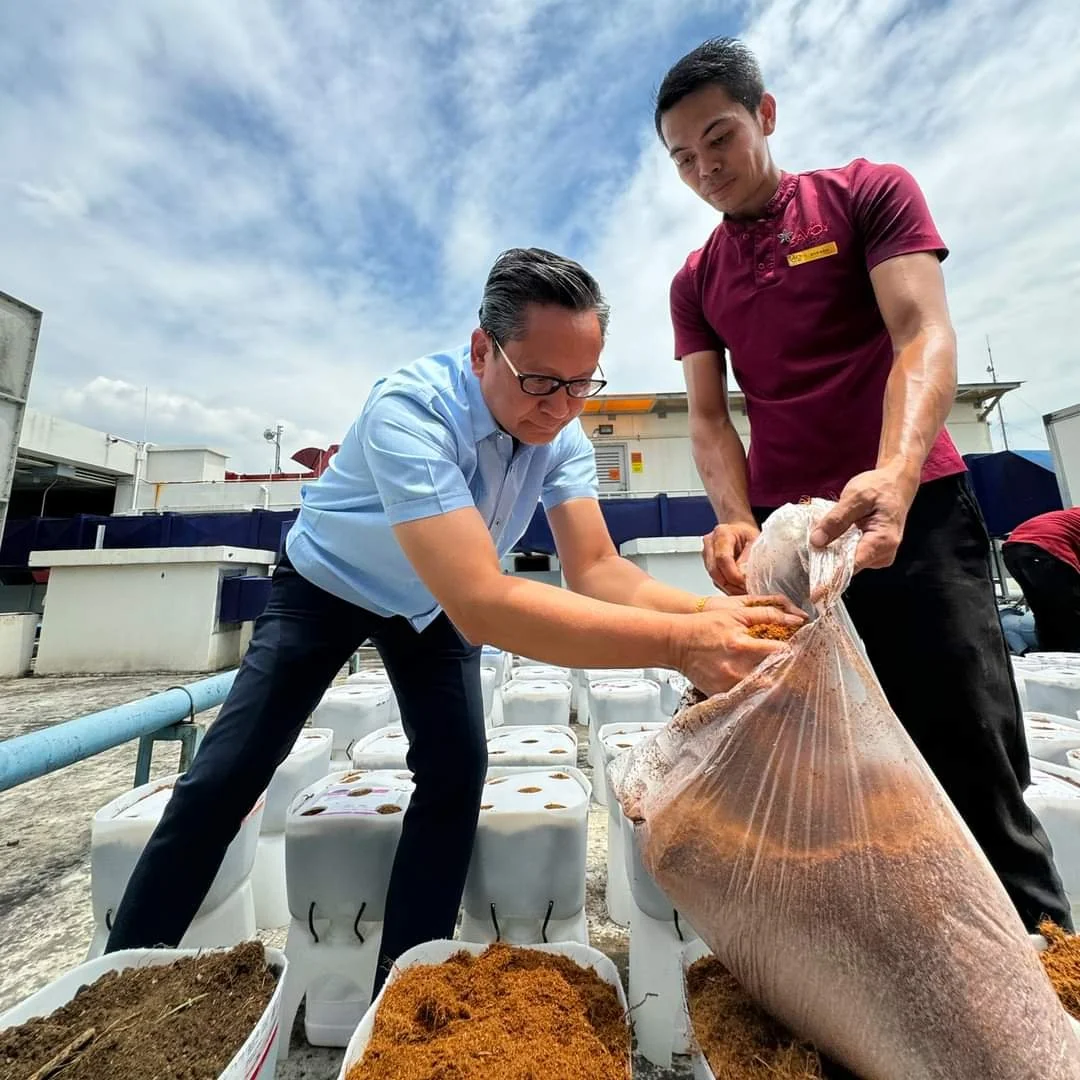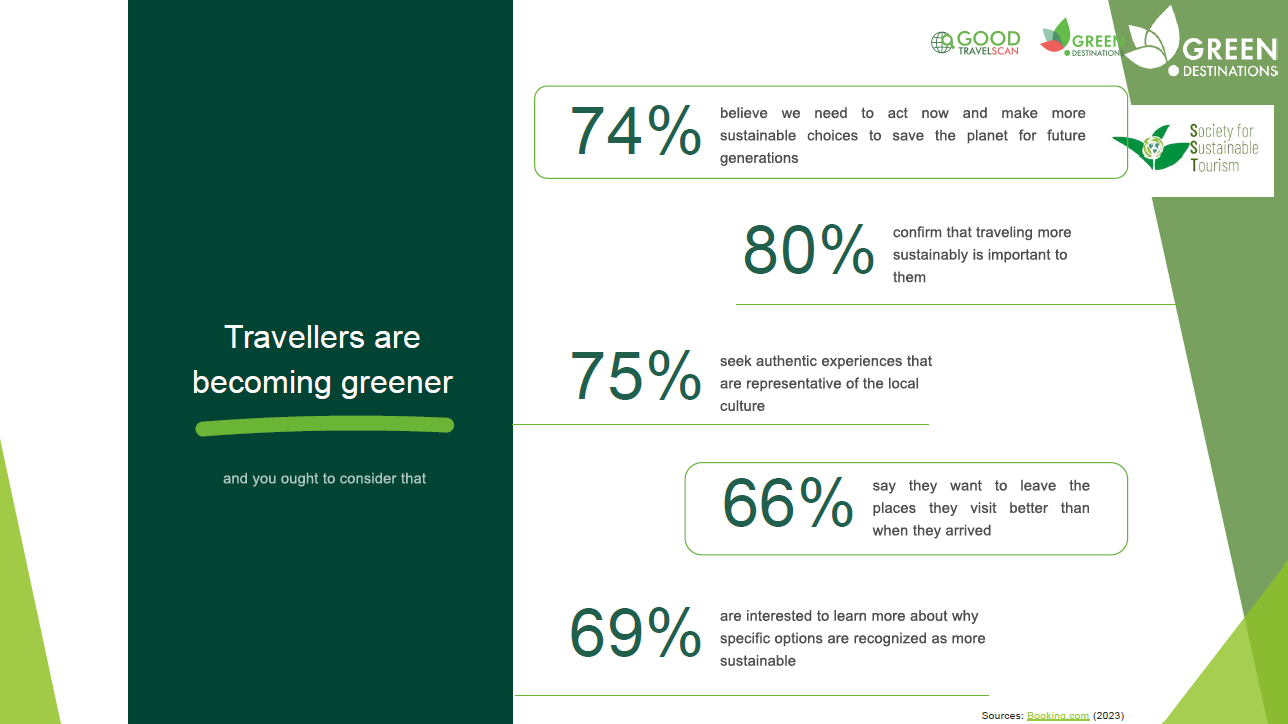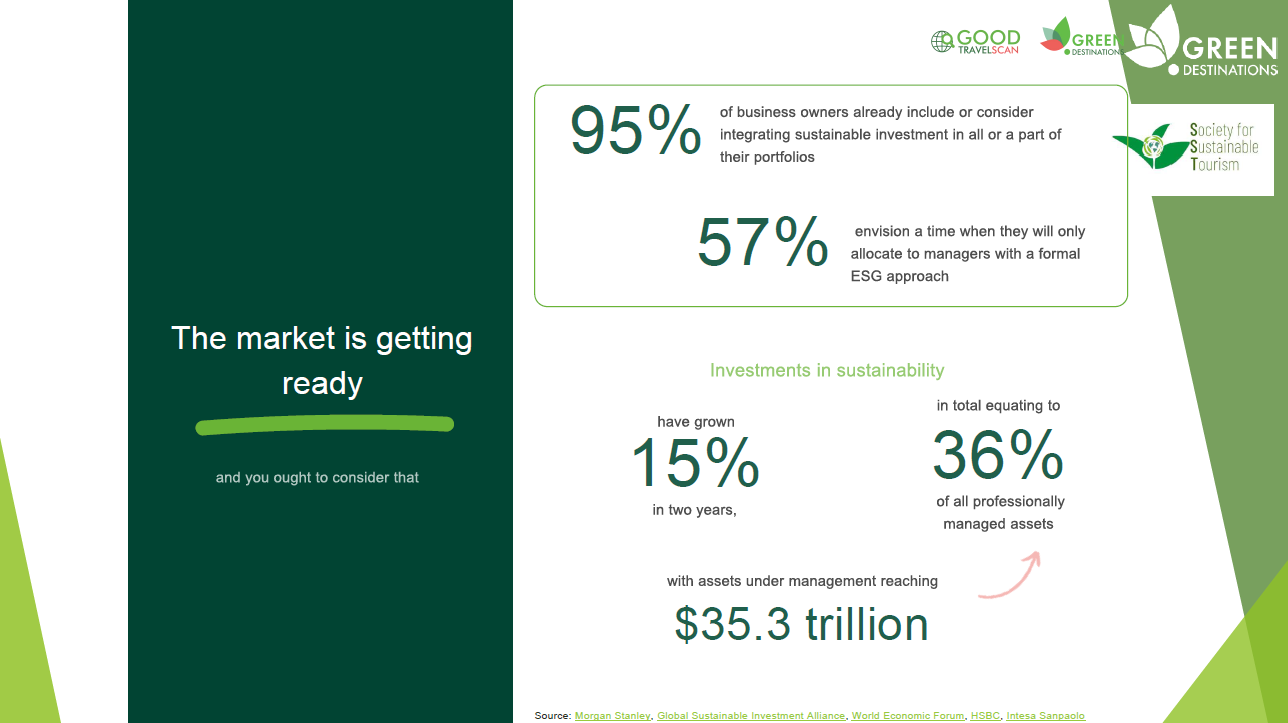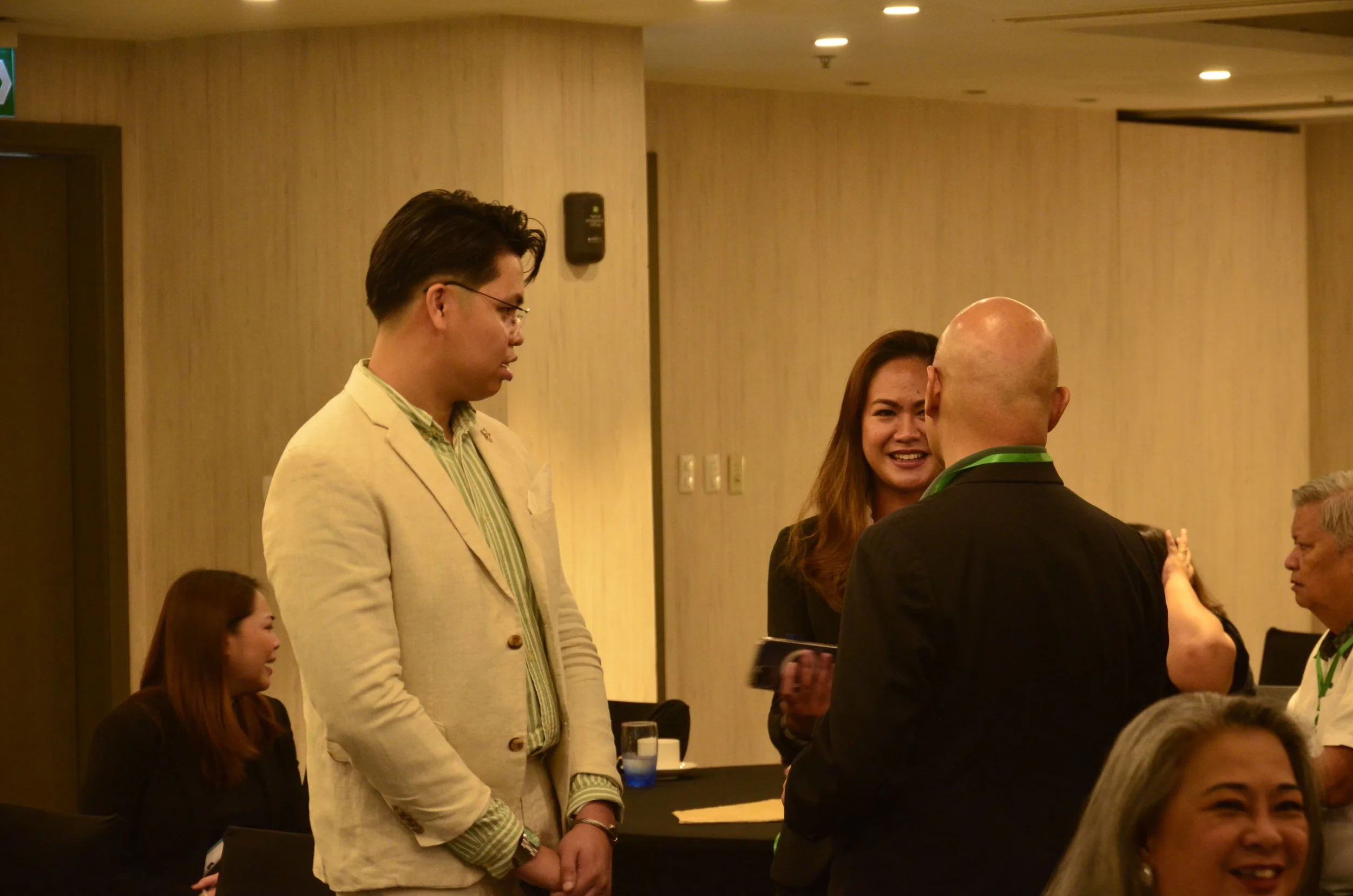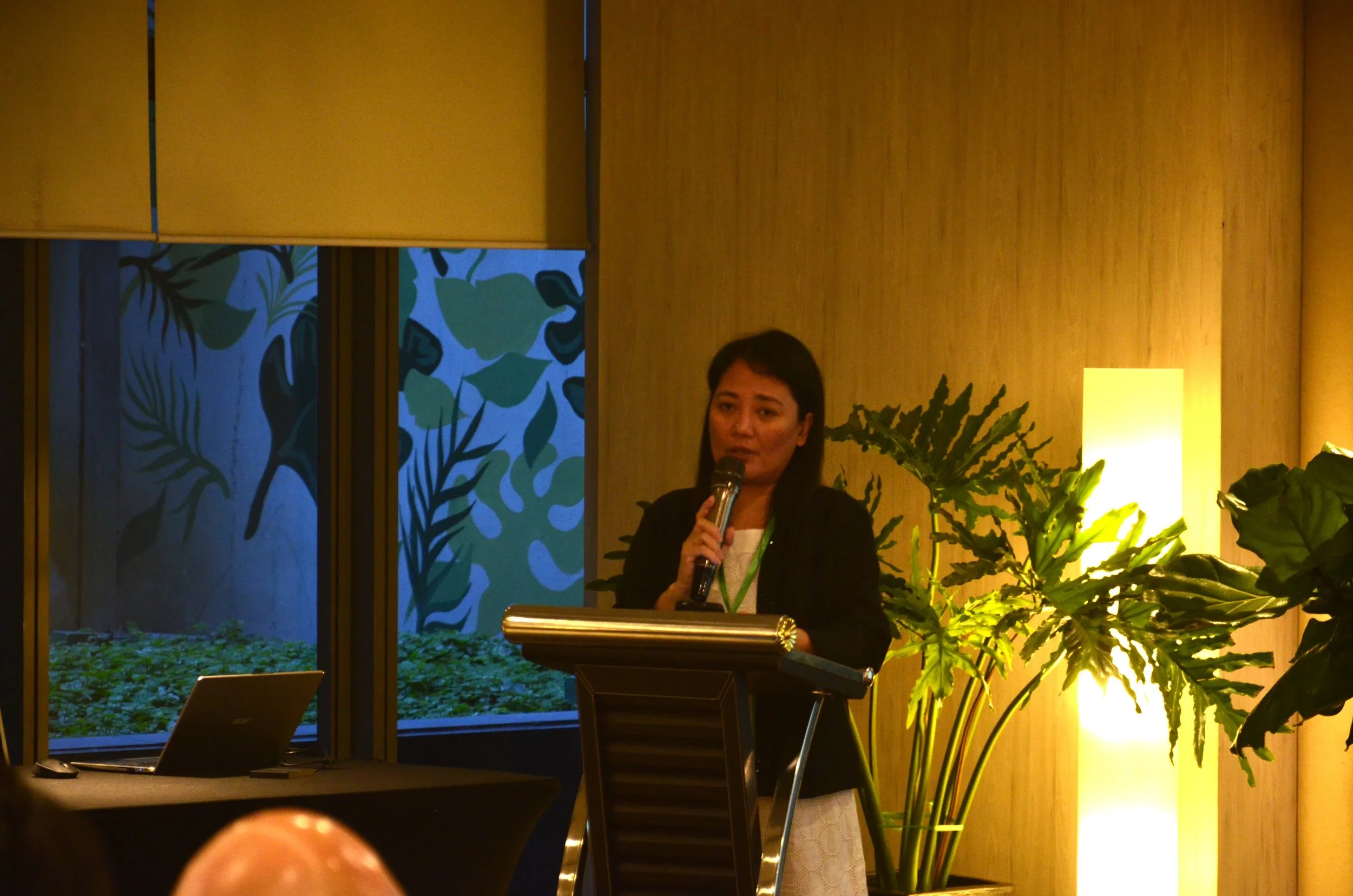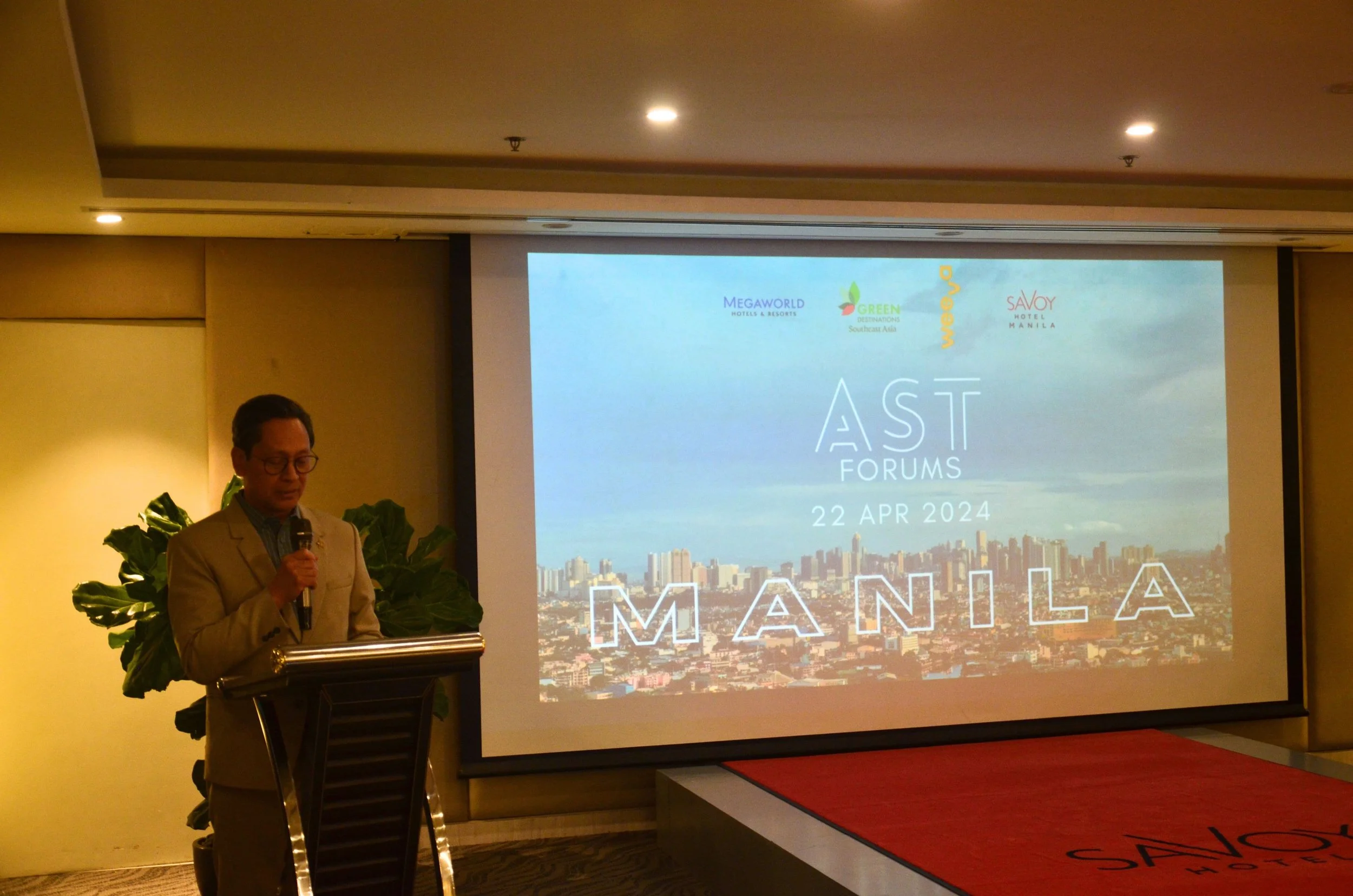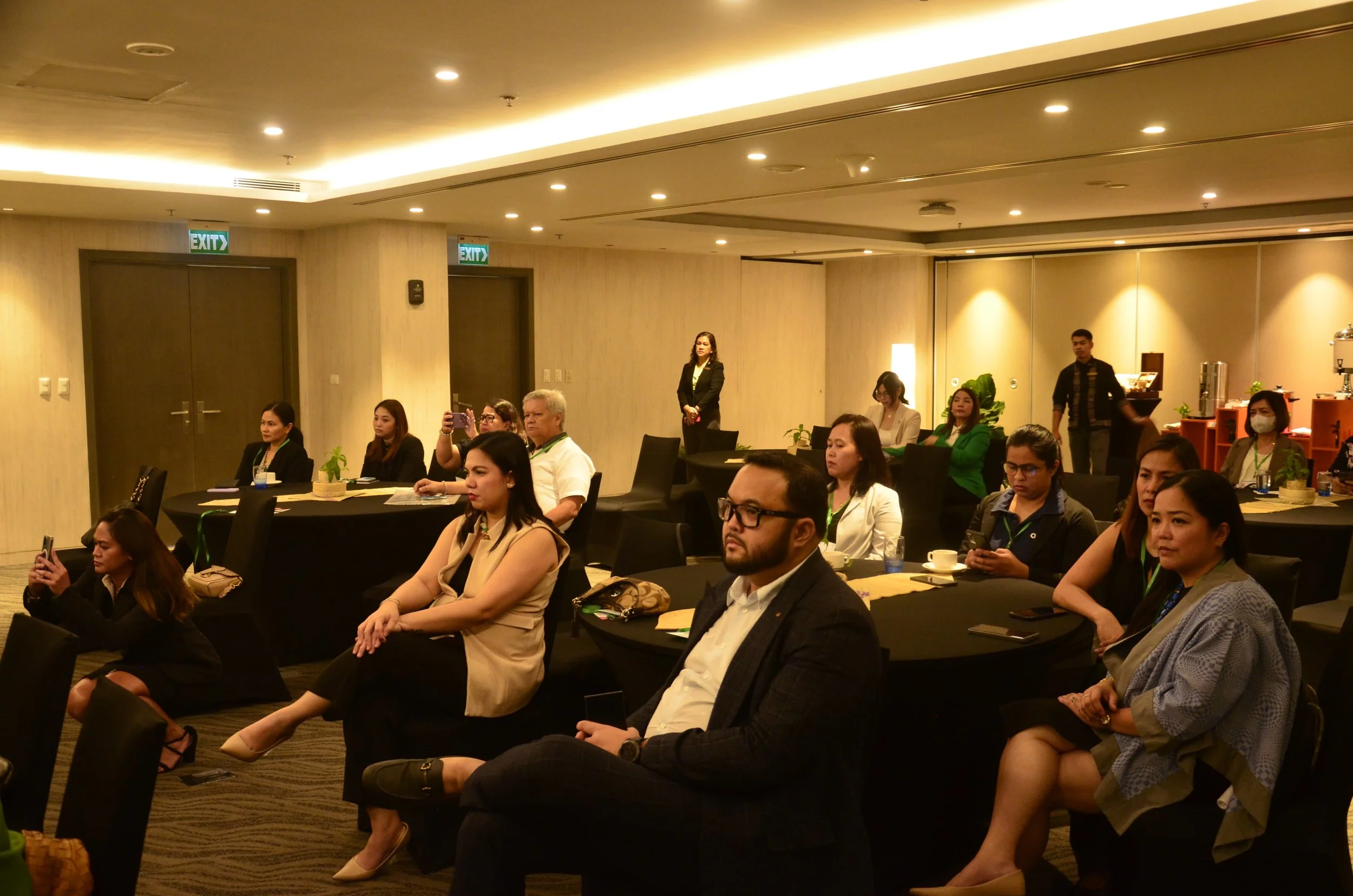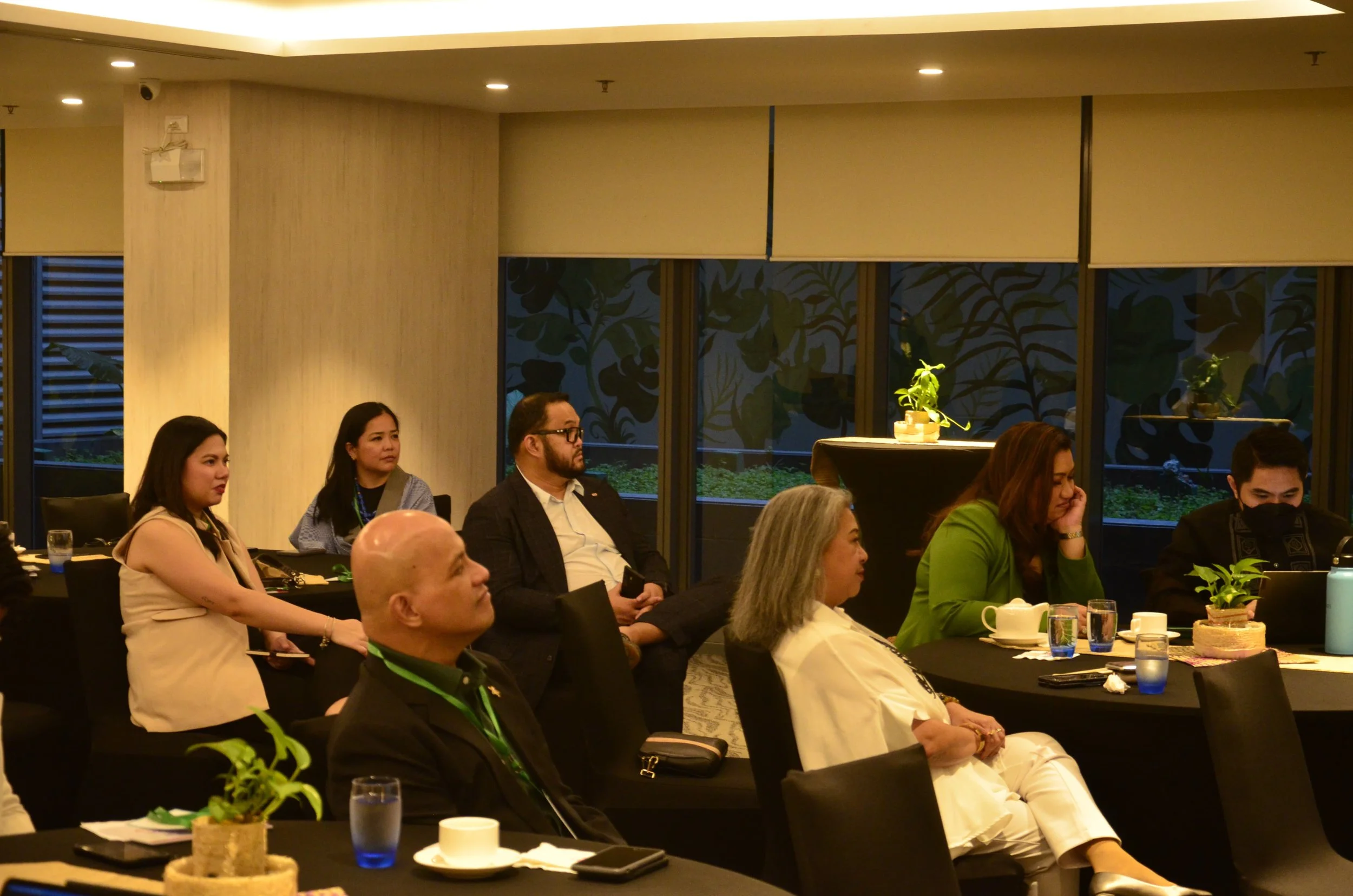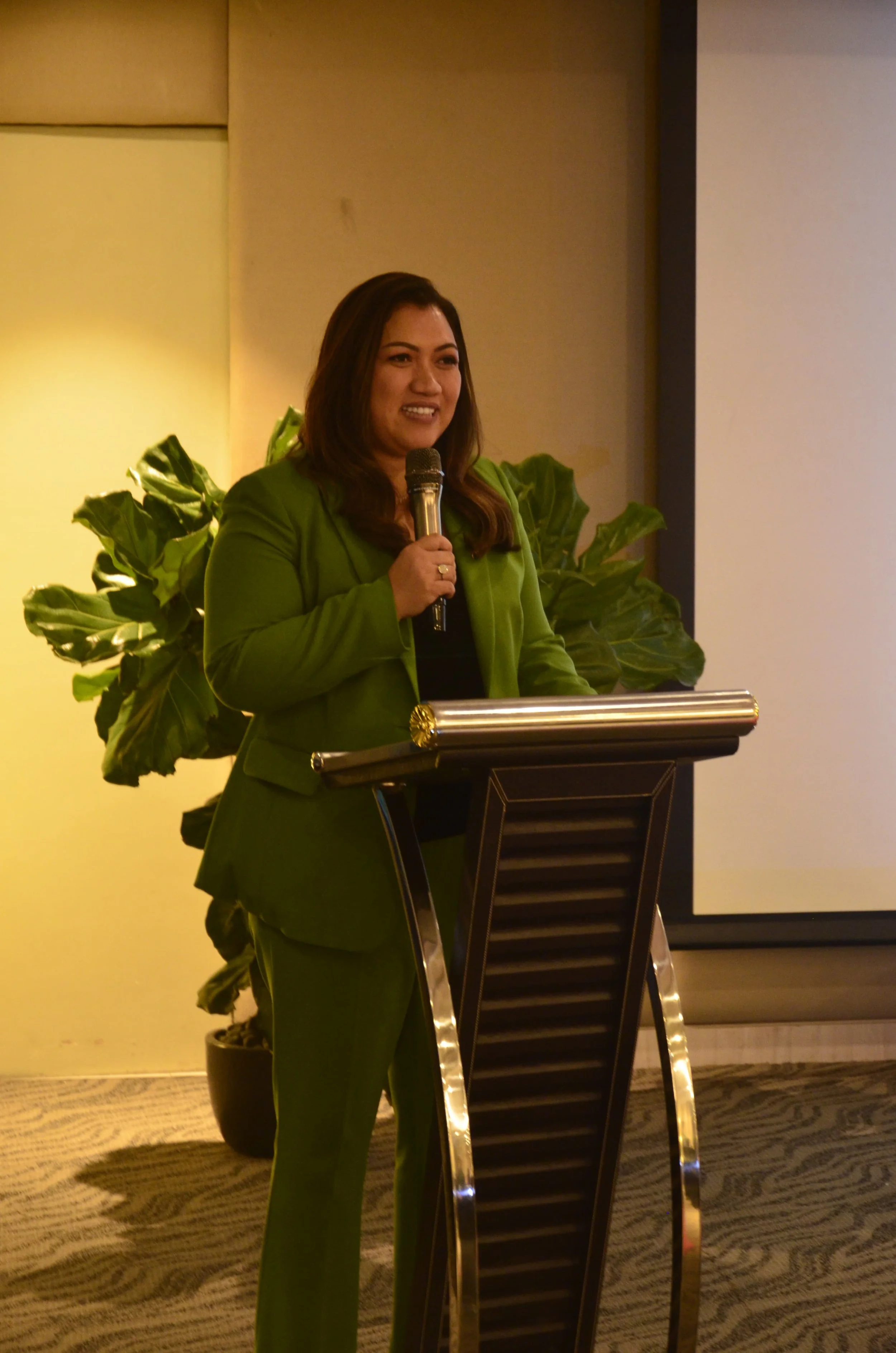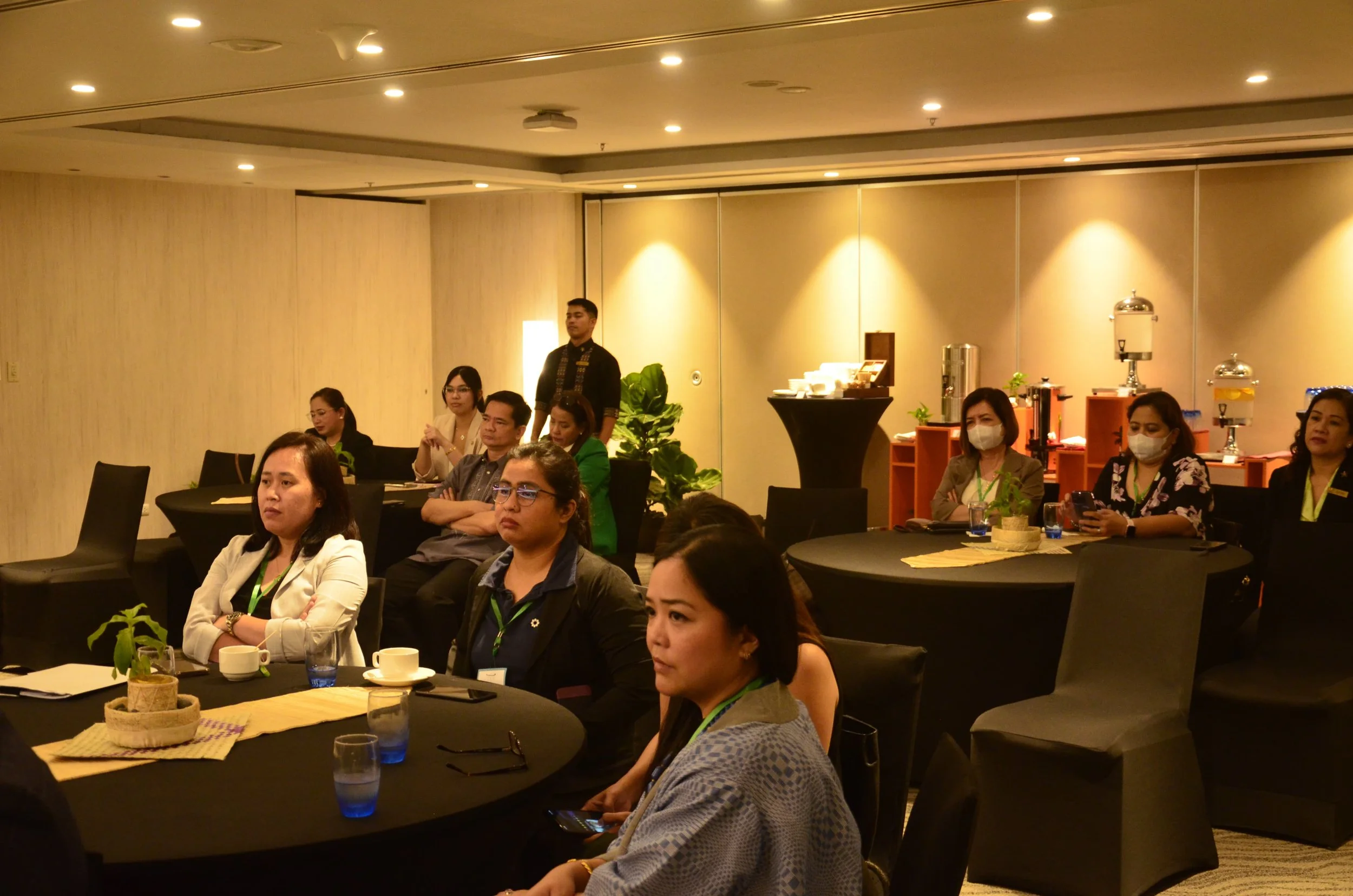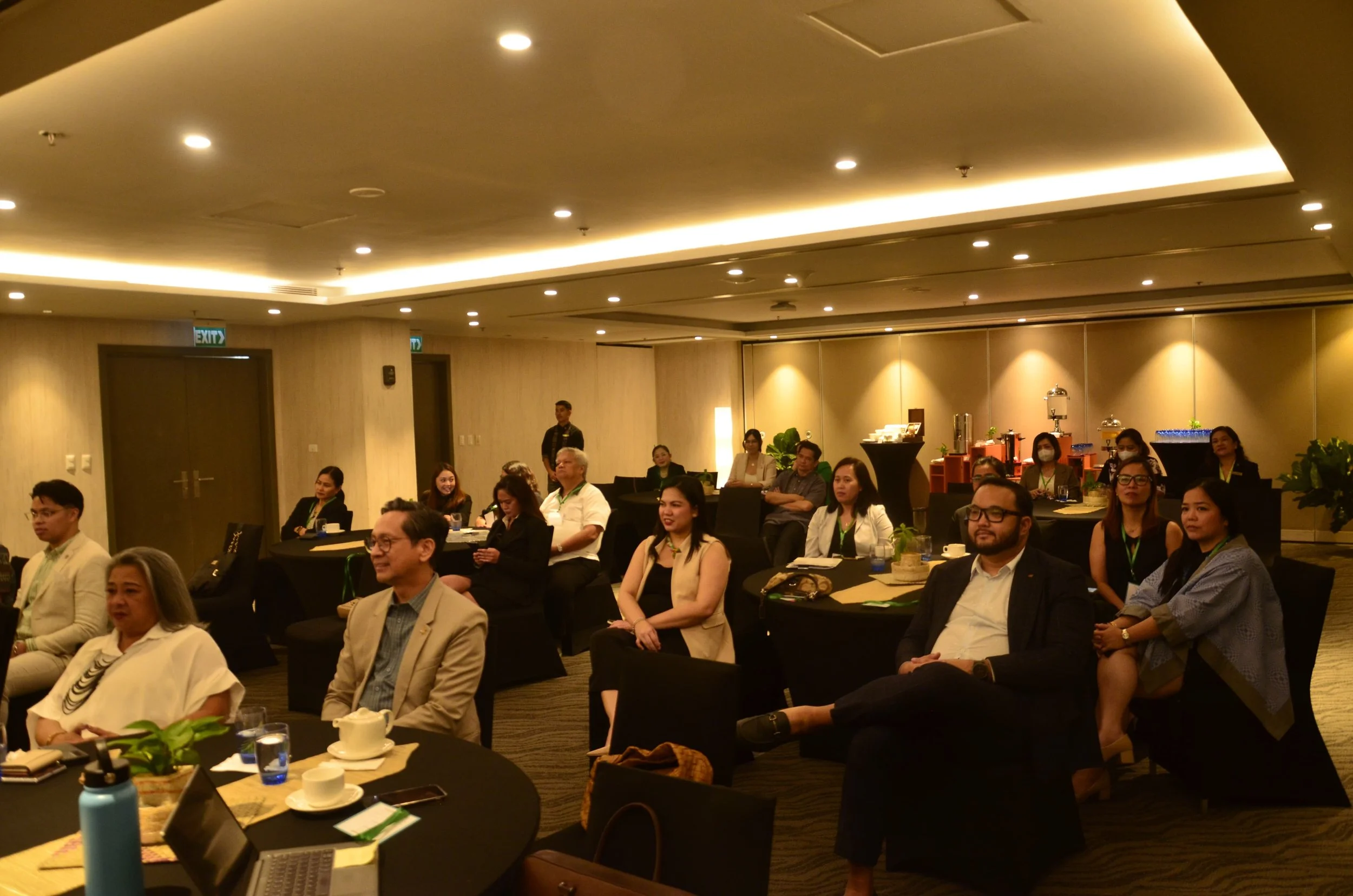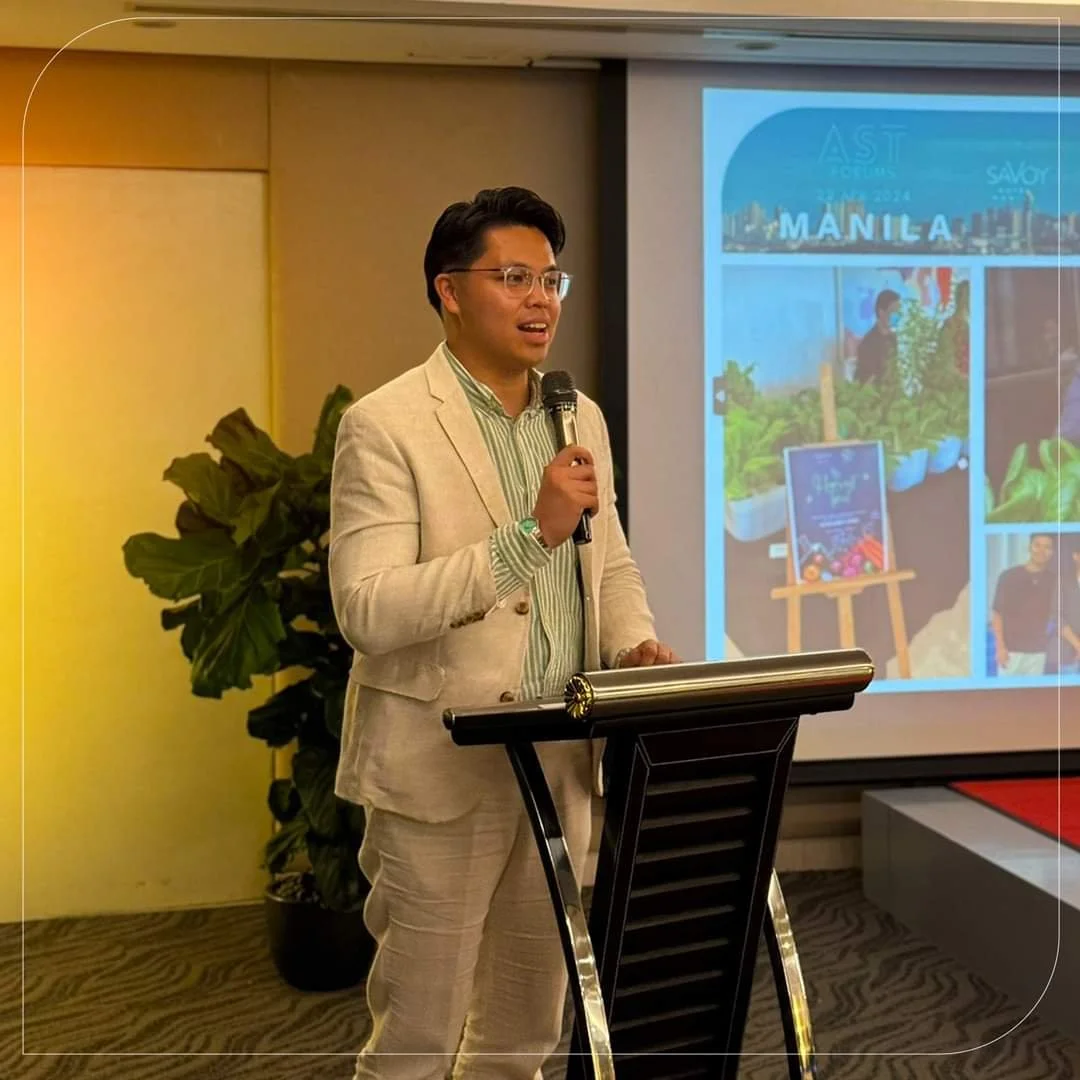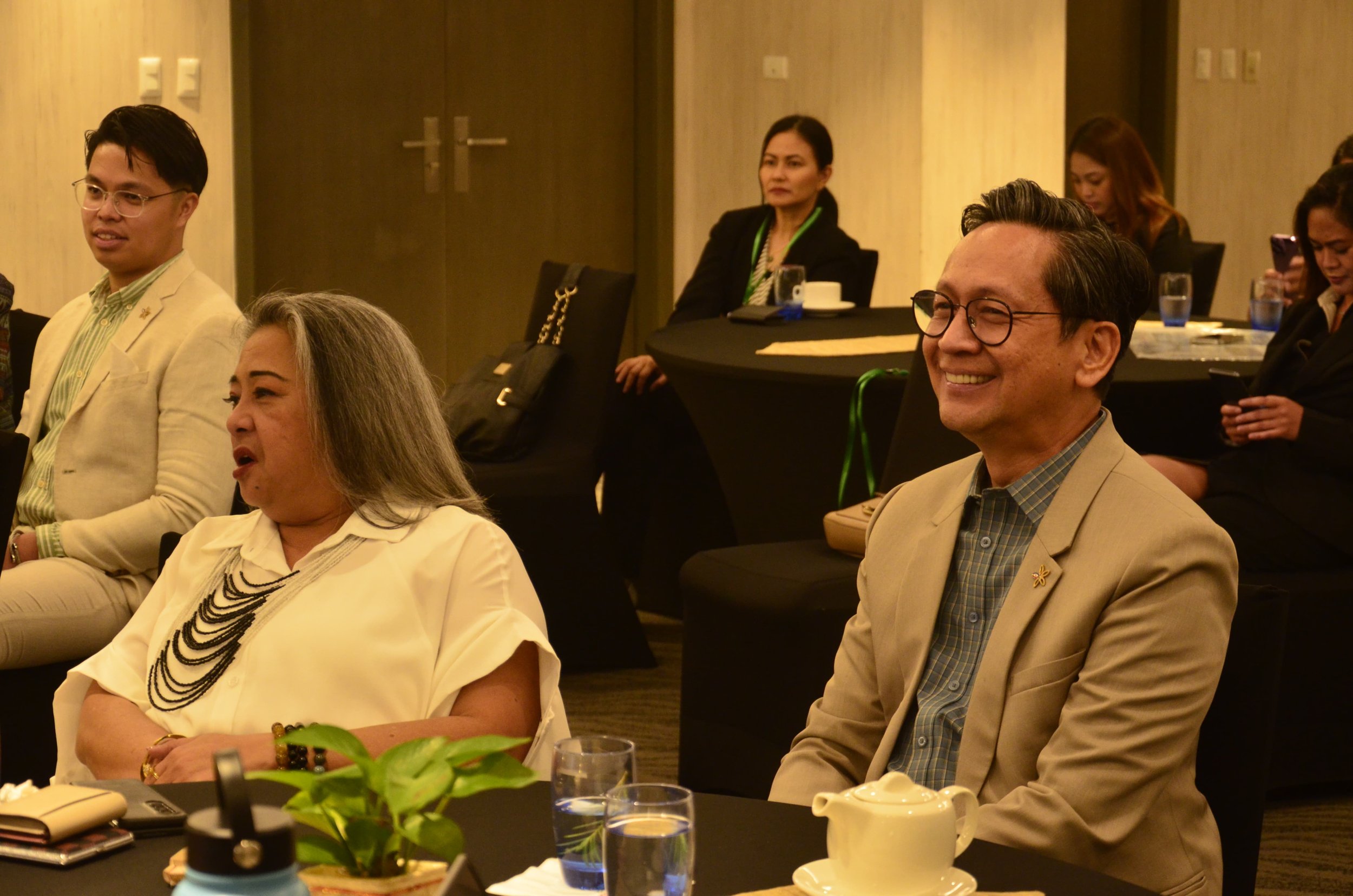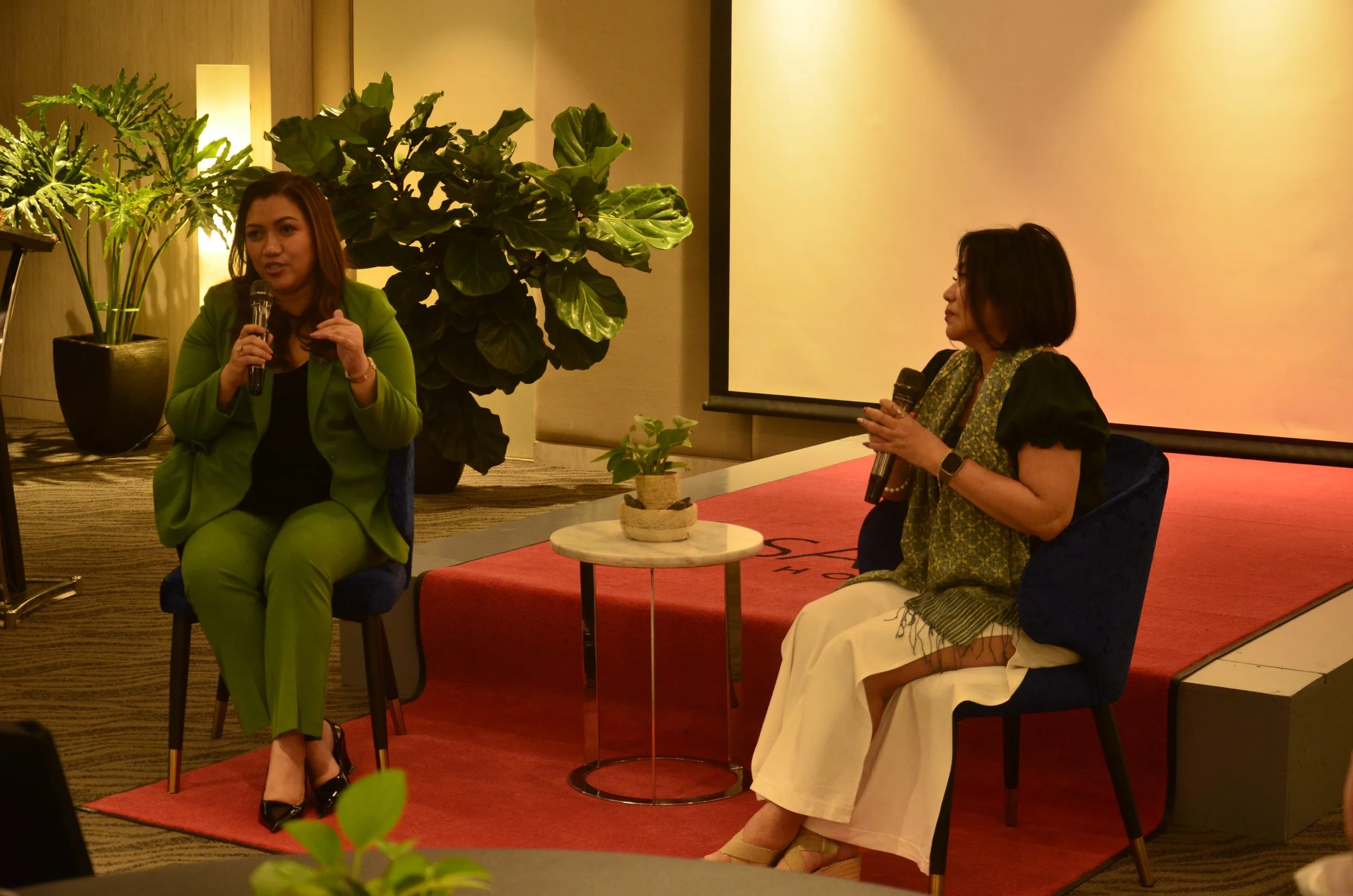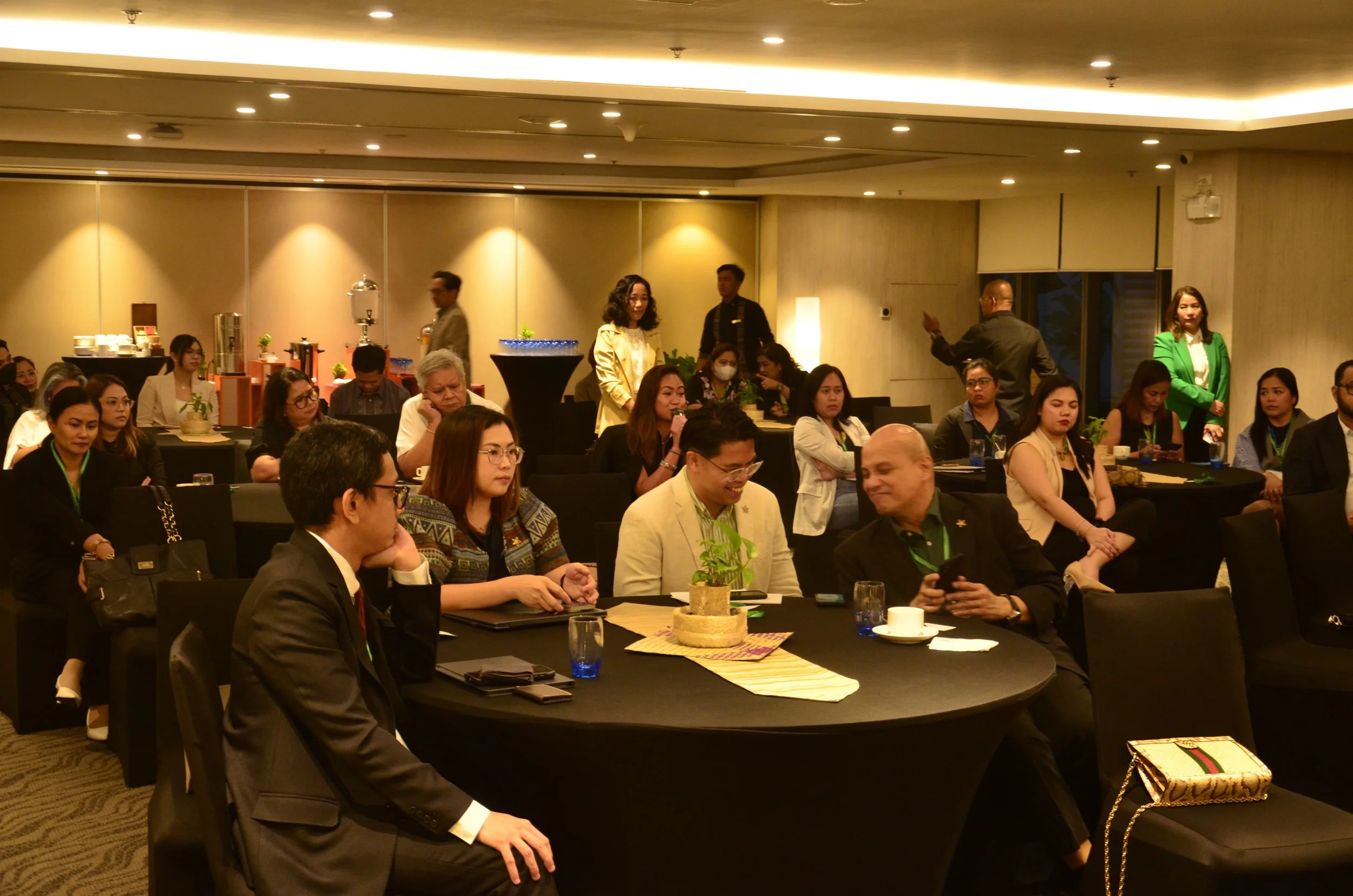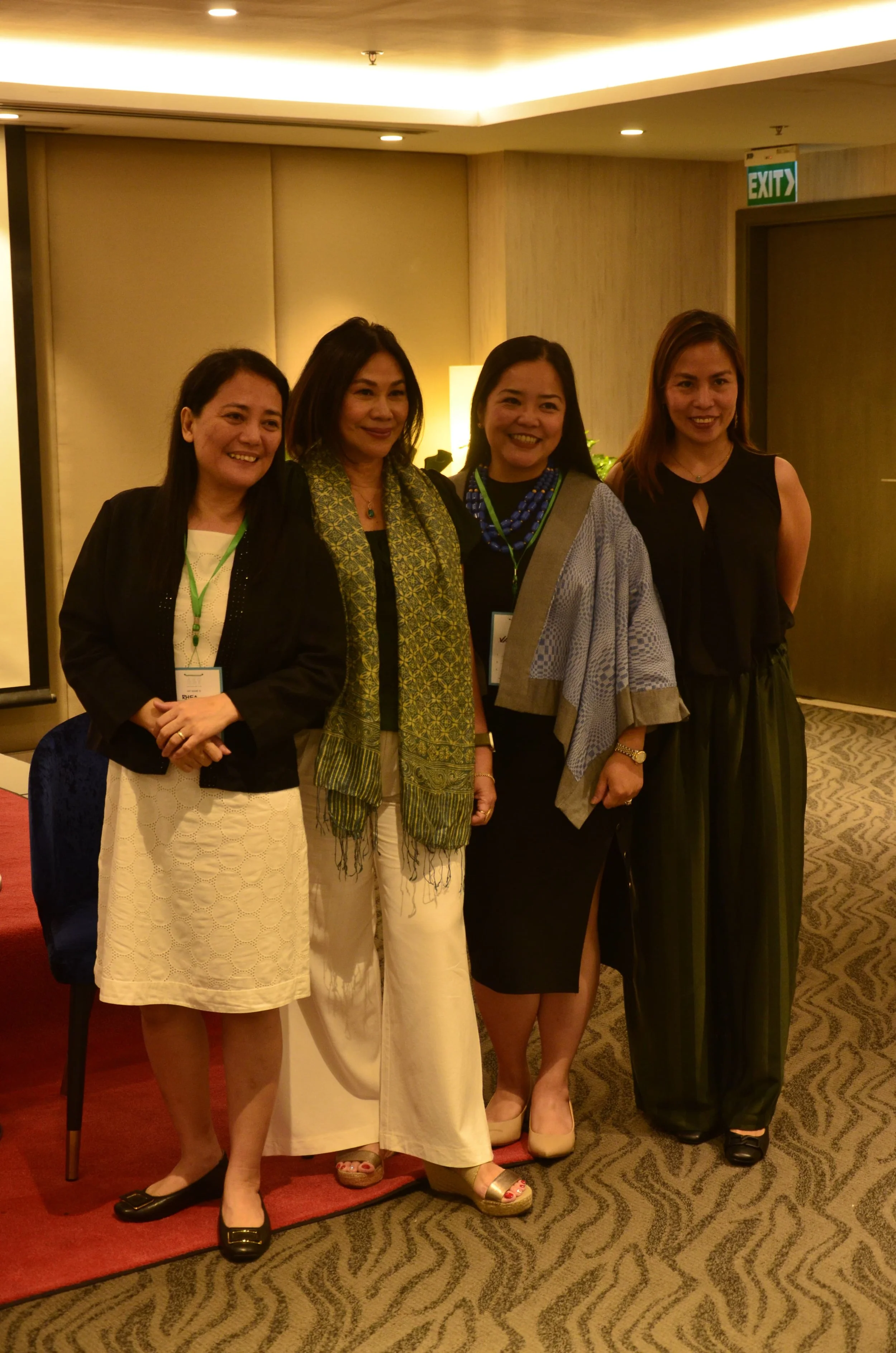Sustainability in Motion: 11 Key Insights from AST Forum in Manila
It was inspiring to witness firsthand the dynamism and passion that unfolded at the recent Asia Sustainable Travel (AST) Forum in Manila.
The event was marked with a sense of responsibility and eagerness as industry leaders and enthusiasts gathered, sharing insights, experiences, and visions for a greener, more responsible future for travel.
The conversations were eye-opening, evoking a range of emotions—from the excitement of hearing about passionate initiatives to the sobering realization of the urgent action required to combat climate change. The impact was heightened as, just two hours before the forum, a fire broke out at the open car parking area of Ninoy Aquino International Airport (NAIA) Terminal 3—right across from our venue, Savoy Hotel Manila—destroying at least nineteen vehicles. The fire was suspected to have been caused by a grass fire. Currently, the Philippines is facing a record-breaking heat index ranging between 42°C and 47°C. Experts attribute the extreme weather to climate change.
It's incredible to see what happens when we gather with a common purpose—the energy and potential for change really come alive. This forum didn't just serve as a platform for dialogue but as a catalyst for meaningful action. It reminded me, and I believe everyone else at the forum, why we got into this in the first place: to make a difference, one sustainable step at a time.
As Den Navarro, Savoy Hotel Manila’s General Manager, expressed during his welcome message, “Today marks a significant milestone as we convene to discuss and learn about the future of sustainability in travel. As we engage in meaningful conversations and deliberations, may this meeting be a catalyst for profound change, laying the foundation for a successful and impactful sustainability journey for all stakeholders in the tourism industry.”
Cleofe Albiso, Managing Director of Megaworld Hotels and Resorts (MHR), the largest homegrown hotel operator in the Philippines, with 8,500 room keys across seven brands, shared innovative ideas and actionable insights driving MHR towards greener operations.
Susan Santos de Cardenas, Southeast Asia Partner & Representative for Green Destinations, led a session on the future of hospitality, covering the triple bottom line: People, Planet, Profit.
Let's review the key takeaways and moments of enlightenment from the AST Forum Manila and consider how these insights can help us integrate sustainability as a core component of hospitality business models and our daily lives.
1. The shift towards a sustainable lifestyle begins on an individual level.
"Green living starts with us," Albiso passionately urged attendees to adopt an environmentally conscious mindset. She recognizes that not everyone may share the same dedication as environmental leaders like De Cardenas. Still, she believes in the impact of individual choices toward a greener future.
Albiso suggested, "Choose to breathe green and live green every day," asking everyone to consider how their daily decisions contribute to sustainability.
2. Embrace the fundamental role of people in sustainability.
Karlo Evangelista, Savoy Hotel Manila's Compliance Manager and the driving force behind the WeSave Program, pointed out that their people are the key to their sustainability efforts. He stressed the importance of cultivating a culture of sustainability among team members, making it a natural part of their daily actions, both at work and at home.
Evangelista believes it is crucial to empower employees to adopt sustainable practices in their everyday lives, stating, "That's the key."
De Cardenas echoed the same and emphasized the importance of teamwork and collaboration across departments. "You can't do it alone," she said, encouraging leaders to involve every department and staff member in sustainability efforts. This strategy makes sustainable practices a core part of the corporate culture, not just standalone projects.
Megaworld Corporation's MeGreen campaign demonstrates its commitment to the environment. "We can scramble words as a vision or promise, but what we always want to avoid is greenwashing," admitted Albiso, pointing out common industry pitfalls. The campaign aims for a clear commitment to sustainability, beginning with a cultural shift within the company and extending outward.
3. Champion the role of industry collaboration.
De Cardenas highlighted the importance of unity among sustainability advocates and industry stakeholders. "This way, we could really impact the industry," she remarked, indicating that collective action could greatly promote sustainable destinations. Her call for collaboration reflects a broader strategy to boost the Philippines' role in sustainable tourism through joint efforts.
Albiso emphasized the crucial role of local initiatives and the synergy between the private and public sectors. Sharing the recent campaign in Iloilo, she showed how working together could overcome government limitations and political barriers. "Synergy is the name of the game now," Albiso said, showcasing the power of collaborative efforts in promoting destinations and driving sustainable development.
The establishment of the Boracay MICE Alliance (BMA) proves how collaboration can achieve sustainability goals. "With about 74 stakeholders, our voice grows stronger together," Albiso noted, demonstrating how unity among stakeholders can amplify advocacy for green initiatives. The alliance aims to position Boracay as a green MICE (Meetings, Incentives, Conferences, and Exhibitions) destination, showing how teamwork can advance sustainable tourism.
4. Amplify sustainability through impactful partnerships and community engagement.
MHR's collaboration with Dwellbeing, founded by two mothers who turned to organic remedies for a child with skin asthma, led to the creation of the Sampaguita Scent project. This partnership demonstrates Megaworld's commitment to supporting local businesses, using 1,766 gallons of the signature Cool Sampaguita scent across all 12 properties.
Albiso also shared that this partnership extends beyond business, involving participation in community feeding programs. MHR’s purchase of the Sampaguita scent has fed 3,900 families in Tondo, Manila through Dwellbeing’s collaboration with the Project Pearls Foundation.
Screenshot from Cleofe Albiso’s presentation
5. Celebrate and promote local culture.
The Sampaguita Project: A Tribute to Filipino Heritage
MHR's Sampaguita Project is more than an initiative; it symbolizes the company's commitment to nurturing love, honor, dignity, and healing—qualities embodied by the Philippines' national flower, the Sampaguita.
"It's very symbolic for Megaworld," Albiso described, emphasizing the project's fit with the brand's values and its effort to showcase something inherently Filipino.
Revitalizing the Sampaguita industry
To revive the Sampaguita industry, Megaworld visited San Pedro in Laguna, once known as the Sampaguita capital of the Philippines. This industry faced a decline due to neglect and lack of support. Through collaboration with the Department of Agriculture and direct engagement with garland makers, Megaworld sought to reinvigorate this sector.
"We're happy that we have been able to meet up with our garland makers, whose lives are so dependent on the garlands that they sell," Albiso remarked, pointing out the importance of supporting these artisans and creating sustainable opportunities for them.
Photos by Megaworld Hotels and Resorts
Elevating the Sampaguita experience
The Sampaguita, often underappreciated, has been reimagined through Megaworld's initiatives. The introduction of a Sampaguita-themed menu, featuring dishes like Sampaguita Rubbed Pork Belly and Mango Sampaguita Cheesecake, is part of a broader effort to change perceptions and showcase the flower's versatility.
"And we are very glad, although this is not very substantial when we talk about hotel revenues, but as a start, we were able to gather 2.5 million pesos plus in less than a year," Albiso shared, highlighting the success of this innovative approach.
Photo by Megaworld Hotels and Resorts
Celebrating Filipino Culture Through Music and Scents
MHR also seeks to connect guests with Filipino heritage through music and scents. Playing Filipino songs and incorporating massage oils and spritzes inspired by local traditions into their spas are ways the brand creates a uniquely Filipino experience.
Photo by Megaworld Hotels and Resorts
6. You can create green spaces within an urban setting.
Savoy Hotel Manila, in the heart of Newport City in Pasay City, stands proud with its rooftop and vertical garden initiative. This project elevates the hotel's commitment to sustainable agriculture by growing its own vegetables and herbs, reducing external food sources, and offering guests fresh, locally grown produce.
The garden stands out because it uses repurposed containers from the hotel's Housekeeping Department, which supports plant growth and reduces waste.
Photos by Savoy Hotel Manila
7. Focus on "doables" and celebrate small achievements.
Buddy Recio, publisher of Hospitality News Philippines, emphasized the need to keep sustainability simple and relatable to encourage widespread participation. He also stressed the importance of clear, practical, and actionable sustainability practices in the tourism and hospitality industry.
"I think the turnoff really was when other experts would talk and make it so difficult for us to understand," Albiso shared, calling for a simplification of sustainability concepts to promote broader engagement and implementation.
"We can start by understanding that it's a must now. And then, if we all are on the same page, we take baby steps and convince others to do the same."
She added the importance of celebrating small wins in sustainability. "When we eat lettuce from our garden pot, we celebrate these small steps," Albiso said, showing how simple, small actions can help achieve bigger sustainability goals.
8. Commit to authenticity and avoid greenwashing.
De Cardenas emphasized the importance of verification and certification in ensuring transparency and accountability, which is crucial for distinguishing authentic, sustainable practices from greenwashing.
By proving their sustainable actions through scorecards, organizations can distinguish themselves from greenwashing and merely making claims.
She pointed out that genuine verification by entities like Green Destinations is key to maintaining transparency, thereby building trust and credibility with travelers and partners.
9. Navigate the challenge of balancing profitability and sustainability.
Acknowledging the inherent tension between financial goals and sustainable practices, Albiso candidly spoke about the industry's focus on profitability. "It's so hard to balance when you want your people to deliver the numbers and at the same time talk about sustainability," she noted, reflecting the widespread concern for revenue and bottom-line results.
Despite this, she highlighted the importance of integrating sustainable practices into the business model, emphasizing that it's not just about meeting immediate financial goals but also about securing long-term viability and success.
Both Albiso and De Cardenas underlined the economic rationale behind sustainability, challenging the misconception that green practices are inherently costly or unprofitable. This perspective reframes sustainability not just as an ethical move but as a strategic business decision that can enhance profitability while addressing the climate crisis.
10. Have the courage to champion a hospitality homegrown brand.
Albiso openly expressed that many hospitality professionals aspire to be associated with international brands, and transitioning to a local brand requires a significant leap of faith. It takes courage for team members to redirect their careers toward nurturing a homegrown Filipino hospitality brand.
"We want hoteliers working for homegrown brands like ours to feel just as proud," she said, recognizing the challenges and commitment required for such a transition, as well as the value of service-oriented work.
"And we're very proud that slowly, we're able to speak with pride about a Filipino brand in hospitality."
Photo by Megaworld Hotels and Resorts
11. Spread good practice stories.
De Cardenas stressed the value of sharing success stories about good practices in the industry. "We all have stories to tell," she said, pointing out the impact of sharing successful sustainable practices.
De Cardenas believes storytelling can inspire other businesses and individuals to adopt sustainable practices and contribute to combating climate change.
She linked sustainability to the changing preferences of business travelers, who often extend their stays for leisure. She pointed out that destinations and hotels offering sustainable experiences attract these travelers more. "Business to leisure is the next big thing," she noted, highlighting the trend of integrating business travel with leisure. She emphasized that sustainable practices are key to appealing to this group.
Screenshots from Susan Santos De Cardenas’ presentation
TL;DR
Sustainable practices are gradually gaining momentum in the Philippine hospitality industry. Local brands like Megaworld Hotels and Resorts have incorporated Filipino culture and sustainable initiatives into their operations to offer guests an authentic experience.
Focusing on practical, achievable sustainability goals and celebrating small wins to encourage participation and commitment is important.
Transparency and verification are crucial in distinguishing genuine sustainable practices from greenwashing.
Balancing profitability and sustainability is challenging, but integrating sustainable practices can bring long-term success.
It takes courage to champion a homegrown hospitality brand, but it is something to be proud of.
Sharing successful stories of sustainable practices can inspire others and attract business travelers who are increasingly seeking sustainable experiences.
Sustainability in the hospitality industry goes beyond ethical considerations; it is also a strategic business decision that can drive profitability and contribute to addressing the climate crisis.
Featured image: fazon1 from Getty Images on Canva
We acknowledge our valued partner, Weeva, who has also been instrumental in supporting AST Forum Manila. Weeva is a sustainability management platform that helps tourism properties track, measure, and report their sustainable operations in one central platform.
Learn more about Weeva here and book an introductory call with a Weeva Business Development Specialist here. Enjoy a 10% discount on your Weeva license purchase with the code AST10.



